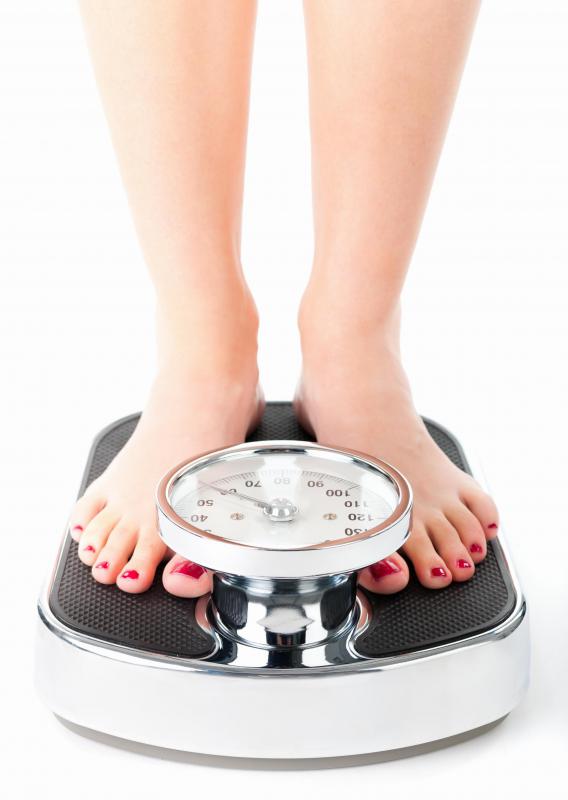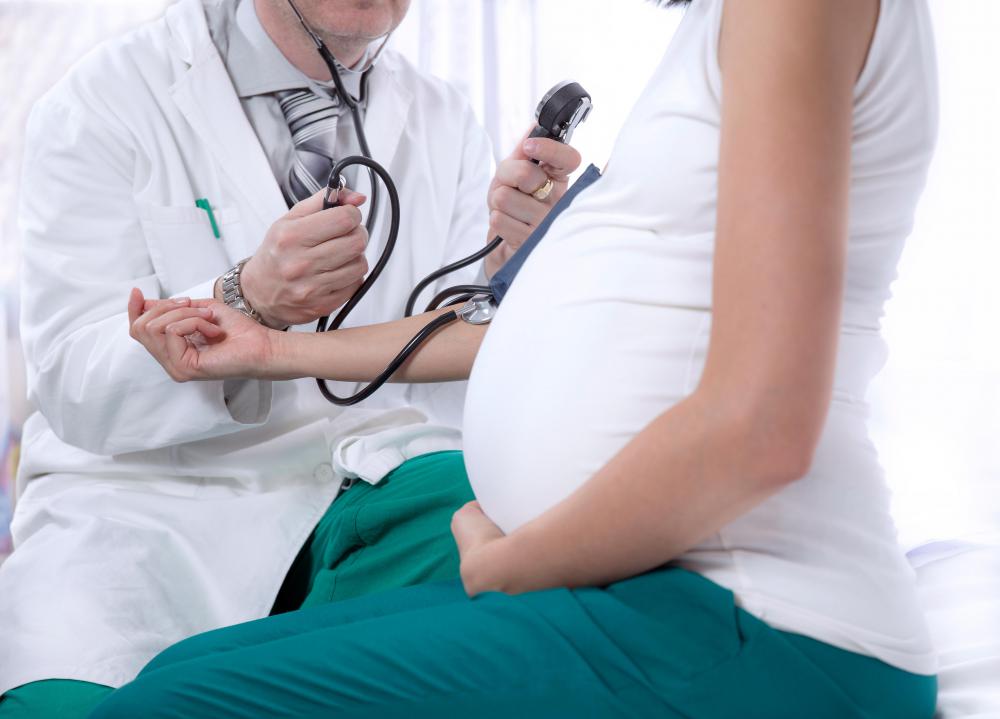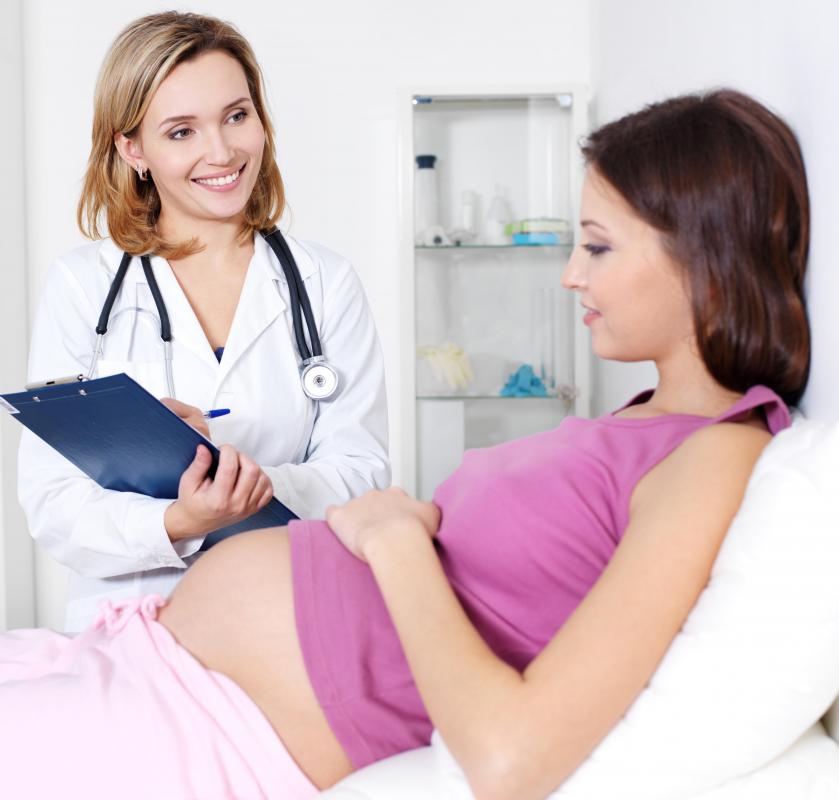At WiseGEEK, we're committed to delivering accurate, trustworthy information. Our expert-authored content is rigorously fact-checked and sourced from credible authorities. Discover how we uphold the highest standards in providing you with reliable knowledge.
What is Preeclampsia?
Preeclampsia, also known as toxemia, is a life-threatening condition that affects only pregnant women, usually late in the second or third trimester, and postnatal women in the first six weeks after delivery. It comes on fairly suddenly, with two major symptoms of protein in the urine and high blood pressure. Preeclampsia occurs in approximately eight percent of pregnancies and is only cured by ending the pregnancy, either by induction of labor or cesarean.
Statistics show that preeclampsia and related pregnancy disorders, such as eclampsia and Pregnancy Induced Hypertension (PIH), are responsible for the majority of maternal deaths, as well as death and illness among infants, worldwide. Approximately 76,000 women die annually due to the disorder. Other symptoms of preeclampsia include sudden weight gain over a short period of time, fluid retention, headaches and problems with vision.

Preeclampsia can be especially dangerous because some women experience no symptoms at all. This is why proper prenatal care is imperative for diagnosing this condition. At every checkup, your obstetrician will screen for symptoms of preeclampsia by tracking your weight, taking your blood pressure and dipping your urine for protein.
High blood pressure, which is indicated at a reading over 140/90 taken at two different times over a span of six hours, is a major symptom of preeclampsia. Edema, or swelling, of the hands and face is cause for particular concern. Sometimes this goes unnoticed because some degree of swelling is expected with all pregnancies.

Another major symptom of preeclampsia is proteinuria, or protein in the urine. This occurs when the small blood vessels in the kidneys are damaged and the protein that should only be in the blood leaks into the urine. Sudden weight gain is defined as two pounds (.9 kilograms) or more in a week, or a monthly gain of six pounds (2.72 kilograms) or more. Other symptoms include persistent headaches, vomiting or nausea that comes on in the second or third trimester, problems or changes in vision and racing pulse. Hyperreflexia and certain pain, specifically pain in the right shoulder, stomach or lower back, are also possible symptoms of preeclampsia.

There are risk factors for certain women that predispose them to a higher possibility of developing preeclampsia. Women who are pregnant for the first time have a higher risk of developing preeclampsia. Pre-existing high blood pressure, diabetes, lupus, family history of preeclampsia and multiple births all increase the risk.
Although a distinct cause is not yet known, scientists believe that preeclampsia has something to do with an abnormally situated placenta that progresses to being hypoxic. Once preeclampsia is diagnosed, doctors do the best they can to monitor the mother until the baby is far enough along to be safely delivered. The only cure is delivery, and the life or death situation often results in the delivery of a premature infant.
AS FEATURED ON:
AS FEATURED ON:















Discussion Comments
I am a 23 year old woman who is pregnant with her second child, my first child came out perfectly fine and I am having a few problems with this pregnancy. First off I was told after a sonogram that they found two markers, one being the thickening behind the neck and the other being two cysts on the brain and now the cyst are gone and the thickening is also gone,now they are keeping an eye on the polyhydramnios because they said its a little bigger then normal. I had another sonogram to take a look and see if it got any bigger and it did not its is still that same size but I did hear that it could cause preeclampsia and I wanted to know if that was true and what my chances are, I am now almost 27 weeks and they are not genetic defects in my family history. My quad test came back and it said my chances of having a baby with a defect was not even a 1% but I do get headaches more then I ever have. but there has been no swelling or anything and the baby is growing like she is supposed to.
Post your comments